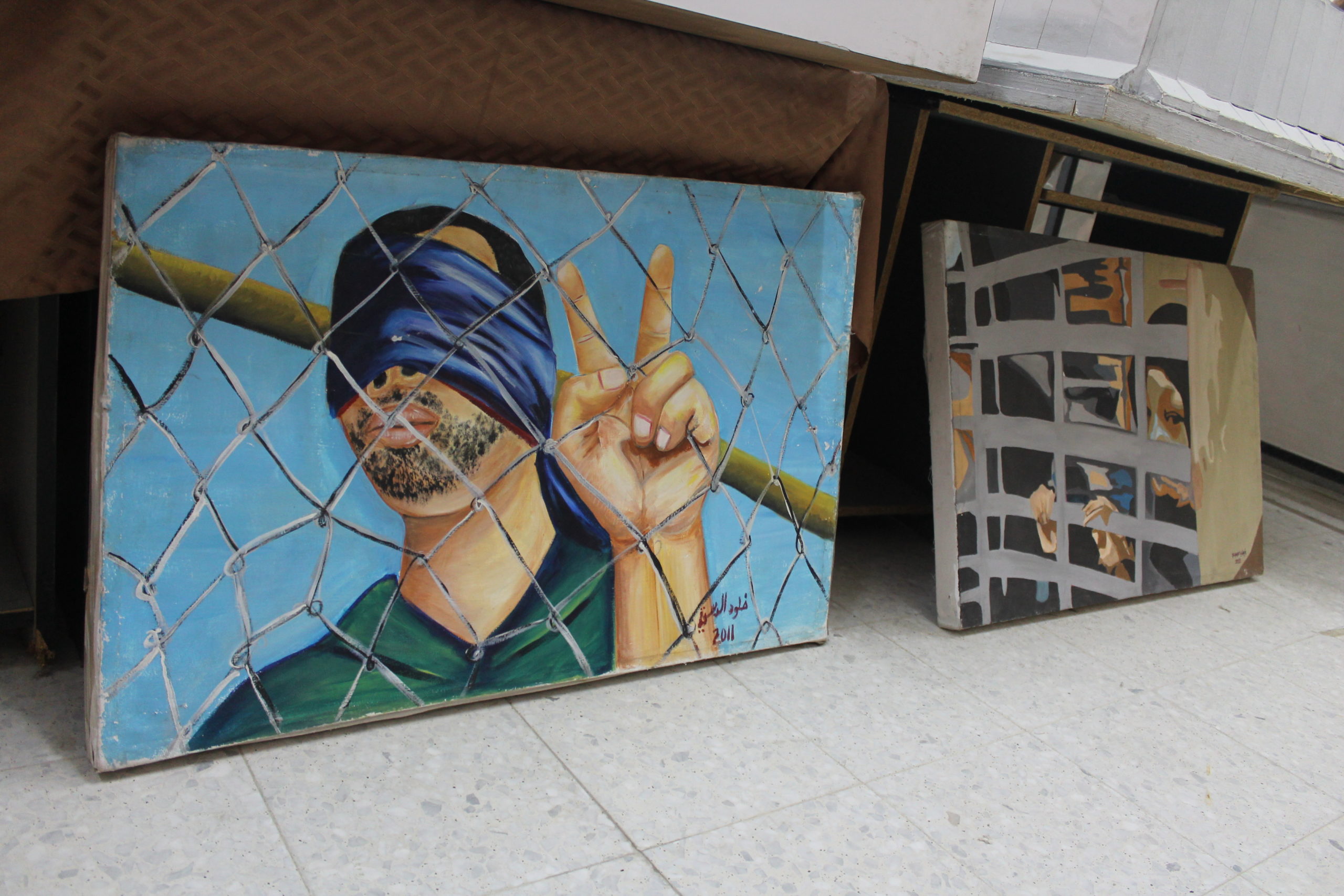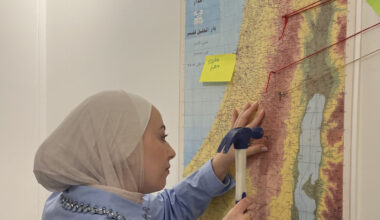
By Teodora Todorova, 2018 CBRL Senior Visiting Research Fellow and Teaching Fellow in sociology at the Univeristy of Warwick
My research is driven by the question of justice as an ethics of responsibility for others. In particular my work is concerned with activist and civil society theories and practices of solidarity and resistance to gendered and racialised power and state violence. I have worked on gendered violence and post-conflict reconciliation in Bosnia Herzegovina. My doctoral thesis examines critical Israeli activist engagement with Palestinian demands for decolonisation, and how this contributes to their reframing of dominant state-centred notions of the Israeli-Palestinian impasse. My three case studies – Zochrot, ICAHD, and Anarchists Against the Wall – highlight the importance of historical narrative and acknowledgement, and the centrality of direct-action in building decolonial alliances that seek to resist oppression and separation. They also foreground the utility of imagining alternative forms of cohabitation that reject ethnocratic politics and the privileging of one national collective over others.
Given my focus on reframing dominant discourses, much of my analysis focuses on examining texts produced by and about the work of these critical activists. As a critical scholar, I view these documents as manuals potentially capable of inspiring social change beyond the particular location in which they are produced. Studying activist texts is also important for the documentation and evaluation of efforts that may easily be forgotten in the context of a protracted and evolving struggle. It is from this previous research focus that my current post-doctoral research project on human rights advocacy for Palestinian political prisoners emerges as both an extension of, and departure from my doctoral studies.
During regular field visits to Israel/Palestine between 2009 and 2011, I began to take note of the recurrence of arrest and detention of Palestinian activists. Palestinians were far more likely to be arrested and detained than their Israeli or international counterparts while taking part in the same non-violent protests and direct actions. They were also far more likely to face violence by arresting army officers. Palestinians also weren’t just being arrested at protests or direct actions for identifiable reasons but would often be dragged out of bed in the middle of the night by a large number of occupation soldiers and held in administrative detention. The latter is a form of incarceration whereby prisoners are held for renewable sentences, based on secret files that they and their lawyers have no access to. Most Palestinian activists involved in non-violent struggle I spoke to had personally been imprisoned or had family members – sometimes multiple – imprisoned in Israeli jails.
Once I began researching this topic in 2015, I became aware of the long history of political imprisonment as an emblematic feature of the Occupation. Since 1967 an estimated 70% of Palestinian families have had at least one family members serve time in an Israeli prison. According to Addameer Prisoner Support and Human Rights Association, close to 6000 Palestinians are currently held in Israeli prisons. The treatment of political prisoners is the litmus test for liberal democracies’ adherence to international law and human rights. Yet Palestinian prisoners are subjected to prolonged detention without charge or trial, and to torture and other ill and degrading treatment. The extraction of ‘guilty’ confessions through these methods result in close to 100% conviction rates in Israel’s Military courts (see Hajjar, 2005).

Despite the marginalisation of the Palestinian prisoner movement in the aftermath of the signing of the Oslo Accords, imprisonment under a security pretext remains a significant aspect of the Israeli Occupation. In this context transnational human rights NGOs and ’cause lawyers’ have become more prominent in advocating for the rights of Palestinian political prisoners. This summer I conducted interviews with Israeli and Palestinian NGOs and advocates working to secure the human rights of political detainees and prisoners. Based on this data collection, I am working to develop a research project, over the next five years, which aims to map and evaluate the efficacy of transnational human rights advocacy efforts to secure the human rights of Palestinian political prisoners. Evaluating the obstacles and opportunities for human rights advocacy is pertinent in light of contemporary challenges by powerful states to the established legitimacy of international legal standards and the institutions tasked with their promotion and application. Such an effort can help to foster new advocacy and policy agendas at the local and international level.
Teodora Todorova is based in the department of Sociology at the University of Warwick (UK) where she teaches social movements and political action, and class and capitalism in the neoliberal world. She holds a PhD in Critical Theory, an MA in Post-conflict Cultures, and a BA (Hons) in Social and Cultural Studies from the University of Nottingham (UK). Her doctoral research examined critical and decolonial activism in Palestine-Israel through the case studies of Zochrot, ICAHD, and Anarchists Against the Wall. Previously she has also worked on gendered violence and post-conflict reconciliation in Bosnia-Herzegovina. More broadly, her research interests include grassroots activism and transnational civil society responses to gendered and racialised power and state violence.
The views expressed by our authors on the CBRL blog are not necessarily endorsed by CBRL, but are commended as contributing to public debate.















